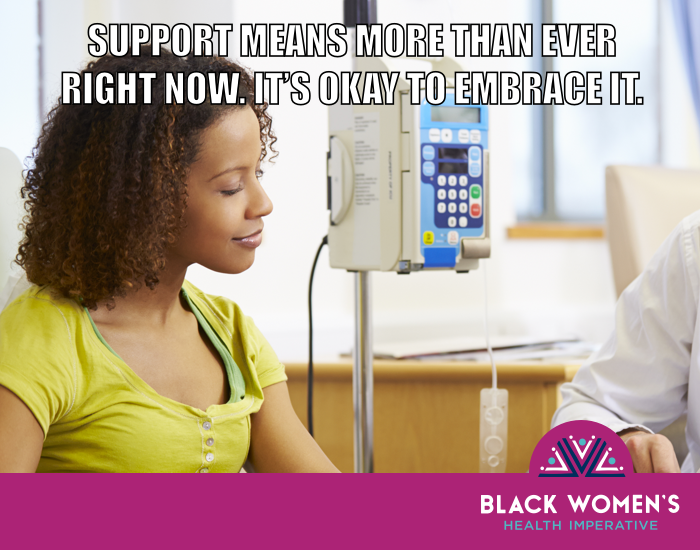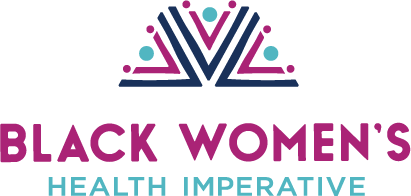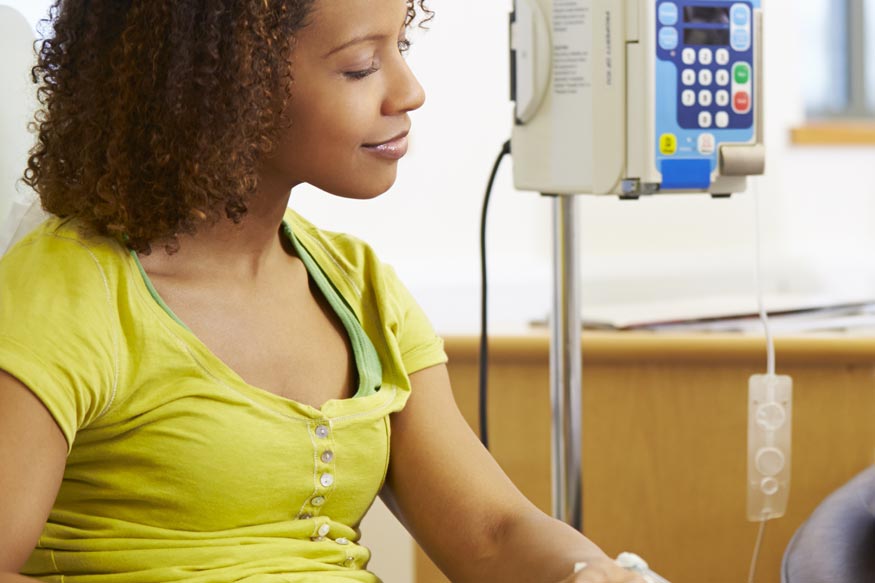If you’ve been diagnosed with breast cancer, the time for treatment comes quickly. Your physician gives you the basic info on what’s ahead, but you’re still not sure what to expect.
That’s a completely normal feeling, but there’s one thing that can help you feel a little more in control: Support. Your loved ones can be a support circle to keep you calm and a healing force as you brave treatment.
But don’t expect all of your relatives and friends to immediately understand what you need. The best move is to be intentional about tapping certain folks on the shoulder and saying, “Hey, I’m going through this and I need your support.” Then, give them specific ways they can help.
Here are some of the roles you might want your loved ones to take on as part of your support circle during breast cancer treatment.
The Sister Who Can See The Big Picture
Yes, this title is a mouthful. The person who fills this role might want to shorten it. But no matter what she prefers to call herself, she knows her job as part of your support circle—and she does it well.
This support circle member:
- Lives near you
- Attends appointments with you
- Can see the big picture of what undergoing treatment for breast cancer means for you—from navigating insurance to filling prescriptions to taking time off work
She’s also an excellent record keeper. At each appointment, she takes note of any tests or procedures you have done, medication instructions you receive, and questions you’ll want to follow up about.
The Connected Cousin
This person does not have to actually be your cousin. However, she does have to be connected and willing to communicate with the people in your life who care about you and are pining away for updates on how you’re doing.
Her role is to:
- Make sure the people you want to get those updates on your health actually receive them
- Be the main point of contact between you and your employer (if you are not feeling well enough to handle those phone calls and emails yourself)
- Send out thank-you notes—yes, even for that ugly sweater the old lady who sits three rows behind you at church knitted for you that you will honestly never ever wear
The On-Top-Of-It Mama
Again, this person doesn’t have to be your actual mother. She just has to be on-point with her organizational skills.
That’s because her role in your support circle includes:
- Lending a hand with the day-to-day tasks that need to be done, even the simple stuff like checking your mail
- Making sure your bills get paid, because when you’ve got so much else on your mind it can be easy to forget those mundane (but still important) tasks
- Helping out with childcare, pet care, or any other care

Who else can you add to your support circle? Let us know!


